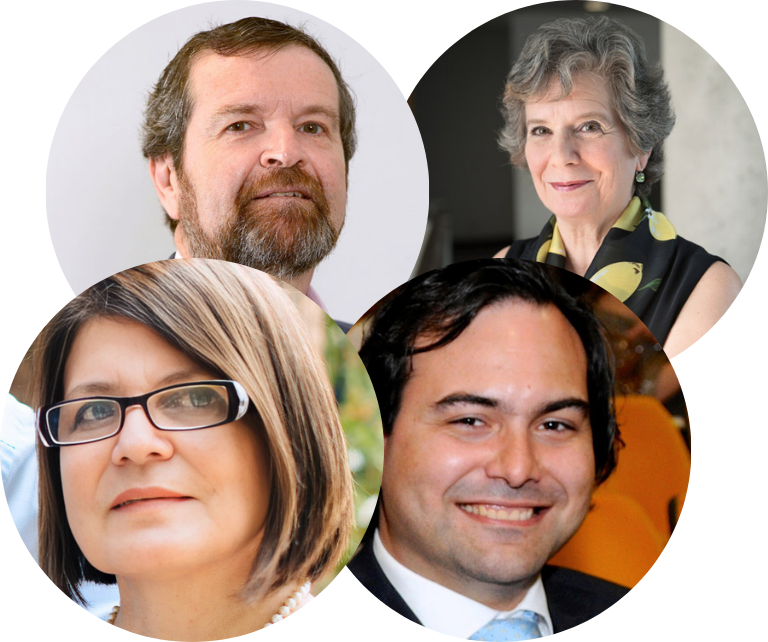Introduction to Developmentally Appropriate Interviewing using the Revised NICHD Protocol
Presented by: Michael E. Lamb, PhD, Irit Hershkowitz, PhD, Mireille Cyr, PhD, and Carlos Eduardo Peixoto, PhD
 This on-demand professional training program on Introduction to developmentally appropriate interviewing using the Revised NICHD Protocol is presented by Michael Lamb, PhD; Irit Hershkowitz, PhD; Mireille Cyr, PhD; Carlos Eduardo Peixoto, PhD.
This on-demand professional training program on Introduction to developmentally appropriate interviewing using the Revised NICHD Protocol is presented by Michael Lamb, PhD; Irit Hershkowitz, PhD; Mireille Cyr, PhD; Carlos Eduardo Peixoto, PhD.
The Revised NICHD (National Institute of Child Health and Human Development) Protocol, developed over the last three decades, provides detailed research- and evidence-based guidance for structured forensic interviews of young and vulnerable alleged victims of abuse. Effective use of the Protocol demands both (1) a thorough understanding of the underlying research and principles and (2) extended supervision and guidance as a trainee works to translate principles into effective practices.
This program reviews the underlying research that guided the development of the NICHD Investigative Interview Protocol and informed its structure and content, particularly child, event, and interview factors. This program is the first of a 4-program certificate program for users and consumers of the NICHD Investigative Interview Protocol and serves as a prerequisite.
Upon completion of this training, participants will be able to:

Palo Alto University, Continuing & Professional Studies (CONCEPT) is approved by, recognized by, or maintains sponsorship provider status with the following boards and agencies. We maintain responsibility for all content in our CE/CPD programs. For more information, visit here.
American Psychological Association (APA): Approved sponsor of continuing education for psychologists.
Association of Social Work Boards (ASWB): Approved continuing education provider (ACE program, Provider #1480), 11/22/2023–11/22/2026.
Canadian Psychological Association (CPA): Approved to sponsor continuing education for psychologists.
National Board for Certified Counselors (NBCC): Approved Continuing Education Provider (ACEP No. 7190).
Palo Alto University, Continuing and Professional Studies (CONCEPT) is approved by the American Psychological Association to sponsor continuing education for psychologists. Palo Alto University, Continuing and Professional Studies (CONCEPT) maintains responsibility for this program and its content. Palo Alto University, Continuing and Professional Studies (CONCEPT), is approved by the Canadian Psychological Association to offer continuing education for psychologists. Palo Alto University, Continuing and Professional Studies (CONCEPT), SW CPE is recognized by the New York State Education Department’s State Board for Social Work as an approved provider of continuing education for licensed social workers #SW-0356 and the New York State Education Department’s State Board for Mental Health Practitioners as an approved provider of continuing education for licensed mental health counselors. #MHC-0073. Palo Alto University, Continuing and Professional Studies (CONCEPT) has been approved by NBCC as an Approved Continuing Education Provider, ACEP No. 6811. Programs that do not qualify for NBCC credit are clearly identified. CONCEPT Professional Training, #1480, is approved to offer social work continuing education by the Association of Social Work Boards (ASWB) Approved Continuing Education (ACE) program. Organizations, not individual courses, are approved as ACE providers. State and provincial regulatory boards have the final authority to determine whether an individual course may be accepted for continuing education credit. CONCEPT Professional Training maintains responsibility for this course. ACE provider approval period: 11/22/23-11/22/26. Social workers completing this course receive (clinical or social work ethics) continuing education credits.